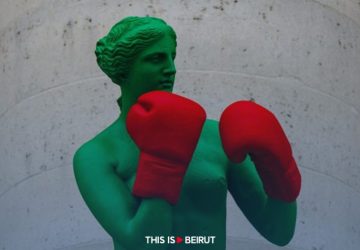Listen to the article
The Beirut Marathon took place in the streets of the capital against all odds on Sunday. Ethiopian runners took a stranglehold on the top places in the queen category (42, 195m).
The 21st edition of the annual Beirut Marathon took to the streets of the capital on Sunday, bringing together Lebanese and international runners in a unique event. Despite the daily deterioration of the country’s political and economic situation, the race was organized with the same determination that characterized it, making it even more special.
The race wore the vibrant colors of national, health, cultural, social and charitable slogans, forging links between sport and other fields, alongside the Lebanese community. It also aligned itself with the deep conviction of the Lebanese people, rejecting violence and erecting sports as an emblem of harmony and unity.
Festive Atmosphere
A festive atmosphere reigned throughout the morning on the Beirut Waterfront, the marathon’s venue, with dance groups, entertainment and much more, contributing to the vibrant atmosphere.
This year’s event took place in a difficult context, to say the least, with ongoing events in Gaza and South Lebanon, a reality that the Beirut Marathon accompanied with deep sadness. May Khalil, president of the association, stressed the imperative need to keep the race going, seeing running as a way of experiencing life to the fullest, particularly in these difficult times. She also expressed the wish to convey a simple message, “This is Lebanon,” a country that persists in its strength despite all difficulties.
An international dimension has also been added to the event, with a team of foreign runners arriving in Beirut on November 9. This team is made up of Ethiopians and Kenyans, as well as Iraqi and Egyptian runners. Among them are a number of renowned athletes who made their mark on this new edition by breaking several records.
Ethiopian Domination
On the international sporting front, the day was marked by exceptional performances, with several records broken. The podiums, largely dominated by Ethiopian athletes, saw some particularly memorable moments, notably in the men’s and women’s marathon (42 km) categories. Gaddisa Tafa Dekeba and Gojjam Belaynieh Aya brilliantly took the first two places in the men’s competition, while Mulugojam Birhan Amt, Gete Dukale Robe and Asmare Beyene Assefa took all the honours in the women’s category.

In the national rankings for this 21st edition of the Marathon, Lebanese runners put in a remarkable performance. In the men’s category, Saleh Zeaiter took the first place, closely followed by Omar Abo Hamad in second and Tony Hanna in third. On the women’s side, the national women’s marathon podium was dominated by Kathia Rached, followed by Nada Jisr in second place, and Aline Merheb in third. These athletes not only demonstrated their sporting excellence, but also carried the national colors high in this exceptional competition.

What added a particularly special touch to this marathon was the participation of athletes with special needs, including participants with sight problems, paralysis and many other challenges. In the men’s half-marathon category for the visually impaired, Hussein Mhanna brilliantly took first place, followed by Hassan Hamieh in second, and Nasser Ballout in third. Similarly, in the women’s half-marathon for the visually impaired, Zahraa Kaadoun distinguished herself by taking first place.

Male Paralympic athletes also performed exceptionally well in various disciplines. In the wheelchair competition, Youssef Mawla took first place. As for handcycling, Ahmad El Ghoul took first place, closely followed by Ahmad Shebli in second place, and Jamal Sousi in third.
The Beirut Marathon (OMT) offered a varied range of races, each leaving a unique mark.
– The “Half Marathon Race for Disabled Athletes” brought together 50 determined participants, illustrating the power of diversity in sport.
– The “Marathon (42.195 KM)” welcomed 1,200 runners, braving the distance with courage and endurance.
– The “Half Marathon (21.1 KM)” attracted 1,800 participants.
– The “10 KM Race” saw the participation of 2200 runners.
– Finally, the “5 KM Fundraising Race” was a great success, attracting an impressive turnout of 13,000 people, united in a single event.
Here are the final rankings:
– Men’s Marathon (General)
1- Gaddisa Tafa Dekeba (Ethiopia)
2- Gojjam Belaynieh Aya (Ethiopia)
3- Rotich Mitei John (Kenya)
– Men’s Marathon (National)
1- Saleh Zeaiter (Lebanon)
2- Omar Abo Hamad (Lebanon)
3- Tony Hanna (Lebanon)
– Women’s Marathon (General)
1- Mulugojam Birhan Amt (Ethiopia)
2- Gete Dukale Robe (Ethiopia)
3- Asmare Beyene Assefa (Ethiopia)
– Women’s Marathon (National)
1- Kathia Rached
2- Nada Jisr
3- Aline Merheb
– Men’s Half-Marathon (General)
1- Salem Atallah (Egypt)
2- Mohamad Kdouh (Lebanese Army)
3- Bilal Awada (Lebanese Army)
– Men’s Half-Marathon (National)
1- Mohamad Kdouh (Lebanese Army)
2- Bilal Awada (Lebanese Army)
– Women’s Half-Marathon (General)
1- Nesrine Njeim (Lebanon)
2- Hanoia Adak Hanoia (Sudan)
3- Marie Therese Murray (Lebanon)
– Women’s Half-Marathon (National)
1- Nesrine Njeim (Lebanon)
2- Marie Therese Murray (Lebanon)
– Men’s 10 km
1- Mohammed Abdullah Ma (Iraq)
2- Ali Reda Kenaan (Lebanon)
3- Hussein Issam Mohammad (Iraq)
– Women’s 10km
1- Bryony Steyn (GB)
2- Joan Makary (Lebanon)
3- Nada El Kurdi (Lebanon)
– Men’s Half-Marathon (Visually Impaired)
1- Hussein Mhanna (Lebanon)
2- Hassan Hamieh (Lebanon)
3- Nasser Ballout (Lebanon)
Women’s Half-Marathon (Visually Impaired)
1- Zahraa Kaadoun (Lebanon)
– Male Paralympic Athletes
Wheelchair:
1- Youssef Mawla
Handcycling:
1- Ahmad El Ghoul
2- Ahmad Shebli
3- Jamal Sousi





